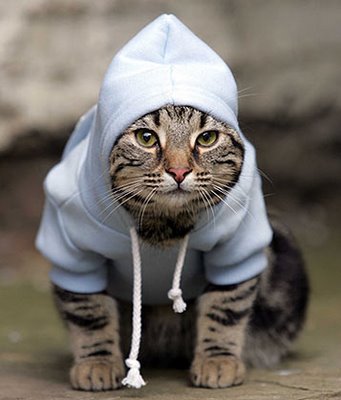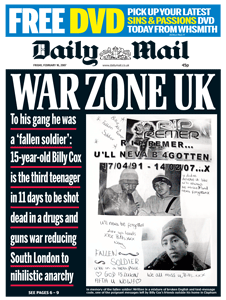The kids aren't alright.
 Death, outraged reaction, draconian solution suggested, draconian solution rejected/forgotten, cycle repeats. It's all too familiar, too rehearsed, too tedious. Add in the factor that it's the silly season and the whole thing is taken up another couple of notches, resulting in editorials claiming that every street is full to the brim with drunken teenagers while the police are handcuffed to their desks filling in paperwork. It's beyond silly and inaccurate, it's exacerbating the already out of control stereotype that the youth of today spend all their time drinking cheap strong booze while smashing up the local playground equipment, and it does absolutely nothing to even begin to sort out the existing problem that there actually is.
Death, outraged reaction, draconian solution suggested, draconian solution rejected/forgotten, cycle repeats. It's all too familiar, too rehearsed, too tedious. Add in the factor that it's the silly season and the whole thing is taken up another couple of notches, resulting in editorials claiming that every street is full to the brim with drunken teenagers while the police are handcuffed to their desks filling in paperwork. It's beyond silly and inaccurate, it's exacerbating the already out of control stereotype that the youth of today spend all their time drinking cheap strong booze while smashing up the local playground equipment, and it does absolutely nothing to even begin to sort out the existing problem that there actually is.Peter Fahy's suggestions on what has to be done to tackle the "yob culture" and youth binge drinking are discriminatory, downright daft and completely wrongheaded. The tragic death of Garry Newlove, the inquiry into which Fahy is meant to be heading, which occurred when he tackled a group of teenagers alleged to have vandalised a small digger he had hired, has not been linked in any way to whether the group had been drinking or not, but that doesn't seem to have gotten in the way of Fahy's arguments on what must be done.
How raising the legal age to purchasing alcohol to 21 will help such avoidable and pointless deaths from happening is not explained, most likely because it will most likely only make the existing situation worse. Nearly all supermarkets and off-licences, which are currently erroneously getting it in the neck for selling to those who are underage, have almost all instituted schemes across the board which require staff to request ID from anyone who looks under 21 before selling them any age restricted product. This already means that those above the legal age but unfortunately don't look it are required to carry around ID lest they decided they'd like to buy a beer. The same is true in pubs and clubs; there may be the odd store which doesn't care, but the fines are now so heavy and strict that it isn't worth the risk. This points towards the fact the most alcohol is being bought by adults, either at the request of teenagers who congregate outside shops and ask them to buy it for them, or by their parents, who either don't care or have it stolen from under their noses. Raising the price of alcohol will also only do so much: it completely ignores why both children and adults are increasingly turning to mass booze binges, while penalising them for wanting to escape from their own humdrum lives for a few hours.
Banning public drinking might remove the odd clusters of youths that do in some places get together, drink and start getting rowdy and harassing people, but again it will only take the problem off the streets, making it more likely that the same will just occur either in private houses or in other places not considered "public". It takes it out of public sight without changing the practice itself. That's all well and good for the police, who aren't called out to deal with it, and for the residents of places where groups have previously suffered, but it just moves it on to somewhere else.
The lessons that the Unicef report on wellbeing ought to have taught have similarly been completely forgotten. It showed that the relationships that are vital in cultivating happiness are just not there - whether it's with their own peers, or with their "elders" themselves, who are by turns either disconnected from their children and young adults, or as the case seems to be with those outside of a family circle, completely uninterested or even hostile towards other children. This is down not to a broken society, as the Tories claim, but to an erosion of empathy, the cult of the self and the mantra of false individualism. When such relationships are missing or stilted, it's little surprise that the things that do bring people together - booze, drugs and sex - are all being increasingly abused by those younger and younger.
What's needed is a complete reapprasial of what it means to both be a child and a teenager in Britain today. Rather than it all being the fault of political correctness and a failure to intervene as the tabloids preach, we've become so scared of our children because of how beastly and violent they're meant to be that we've forgotten that they are us - just even more confused, apprehensive and frightened than we are. Cameron was mocked for suggesting that teenagers needed a lot more love, dubbed by the press and Labour as "hug a hoodie", but he more or less had it right. Despite all the obstacles, we need to both talk and listen. At the moment, the Victorian cliche of being seen and not heard is half right - we see them all too often, but we ignore them.
Labels: binge drinking, Garry Newlove, Peter Fahy, silly season, Unicef report, yob culture


